Introduction
In real estate, the terms landlord and property manager are often used interchangeably. However, they refer to distinct roles with different responsibilities, legal obligations, and involvement levels. Understanding the differences between a landlord and a property manager is essential for property owners, tenants, and anyone involved in rental real estate.
In this article, we’ll break down the differences between landlords and property managers, highlight how their roles intersect, and explain when property owners might hire a property manager to handle their rental properties.
What Is a Landlord?
A landlord is the individual or legal entity that owns rental property. The landlord is the property’s owner and holds ultimate financial and legal responsibility for the property.

Landlord Responsibilities
- Purchasing and financing the property
- Deciding rental rates
- Complying with legal obligations (taxes, insurance, fair housing laws)
- Approving or denying major expenses
- Handling long-term investment decisions
- Hiring property managers or contractors as needed
Landlords may choose to manage the property themselves or delegate daily operations to a property manager.
What Is a Property Manager?
A property manager is hired by the landlord (or property owner) to oversee the daily operations of the property. Property managers may work independently or as part of a property management company.
Property Manager Responsibilities
- Advertising vacancies and marketing the property
- Screening and selecting tenants
- Handling lease agreements and renewals
- Collecting rent and managing late payments
- Coordinating maintenance and repairs
- Addressing tenant concerns and complaints
- Performing regular property inspections
- Keeping financial and operational records
- Ensuring compliance with rental laws and local regulations
The property manager acts as an agent on behalf of the landlord, handling operational details while the landlord focuses on ownership and investment.

Key Differences Between Landlord and Property Manager
| Aspect | Landlord | Property Manager |
|---|---|---|
| Ownership | Owns the property | Does not own the property |
| Legal Responsibility | Ultimately legally responsible for property and compliance | Manages daily tasks under landlord’s direction |
| Decision-Making Authority | Controls major financial and legal decisions | Implements landlord’s policies and handles routine management |
| Tenant Interaction | May or may not directly communicate with tenants | Handles most tenant communications and issues |
| Income | Receives rental income directly | Earns management fees or commission |
| Hiring | May hire property manager for assistance | Employed or contracted by the landlord |
When Do Landlords Hire Property Managers?
Many landlords hire property managers when:
- They own multiple rental units or properties.
- They live far from the rental property.
- They want professional help with tenant screening and legal compliance.
- They don’t have time or expertise for day-to-day management.
- They prefer a hands-off investment approach.
A property manager helps landlords maximize income while minimizing time investment, liability, and operational headaches.

When Landlords Manage Properties Themselves
Some landlords choose to self-manage if:
- They have only one or a few properties.
- The properties are located nearby.
- They enjoy being involved in operations and tenant relations.
- They have knowledge of rental laws, maintenance, and bookkeeping.
- They want to avoid management fees.
Self-managing landlords take on all daily responsibilities but retain full control over their property’s operations.
Legal Responsibilities: Who Is Ultimately Accountable?
- Landlords remain legally responsible for compliance with fair housing laws, property standards, insurance, and financial obligations.
- Property managers operate under a contract with the landlord but must also comply with local licensing and regulations that govern property management activities.
The landlord must ensure that any property manager they hire is properly licensed and operates in compliance with applicable laws.
Financial Differences
- Landlord: Owns the property, receives rent income, pays expenses, and bears financial risk.
- Property Manager: Receives a management fee (often 8-12% of rent), plus possible additional fees for leasing, maintenance coordination, and other services.
The landlord’s income is directly tied to the property’s performance, while the property manager earns fees for providing management services.

Conclusion
The primary difference between a landlord and a property manager is ownership versus management. The landlord owns the rental property and is legally and financially responsible for it. The property manager handles daily operations on the landlord’s behalf, acting as a professional intermediary between the owner and tenants.
Choosing whether to self-manage or hire a property manager depends on the landlord’s time, expertise, resources, and long-term investment goals. Understanding these roles ensures that both owners and tenants have clear expectations, leading to more successful and smoothly run rental properties.


